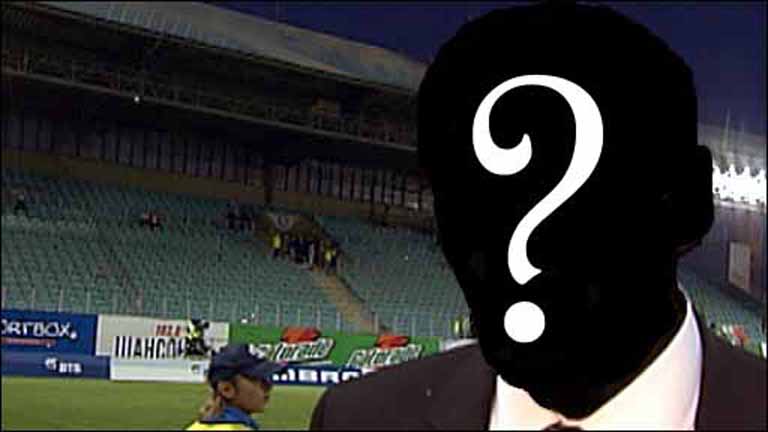Debt
There is a famous saying in business. If you owe the bank £1,000 and can’t afford to pay it back you’ve got a problem. If you owe the bank £1million and can’t afford to pay it back the bank have a problem. Irritatingly for many of us, banks are currently acting a reprehensible manner. Good businesses that just need a little help from the bank are going to the wall whilst others are being proper up because they are simply too big to fail. You may have read recently of quality Glasgow based house builder Dickie being put into administration whilst MiH have recently released shocking figures and remain in business. Look at the figures however – Dickie were £13m into a £15m facility whilst MiH were close to £1b.
We understand that MiH were just too big for the bank to pull down. We also understand that the swap of debt for equity was therefore done with strings attached. MiH MUST reduce debt and all parts of the group are liable for this. They must sell assets to get the debt down and what better more realisable assets than a football player. And if you could sell a whole division which is always loss making and not a core commercial activity… But more on this later.
HMRC
HMRC are investigating Rangers and the amount IS £24million. As we know from previous pieces on here this relates to EBT’s. Rangers believe that these were perfectly legal at the time. If only matters were this simple. The problem with many financial related pieces of legislation is that every circumstance is different and the law is not always as explicit as people would like. You can call the tax man and ask for advice, but inevitably the taxman will refer you back to the act for you to make your own interpretation. And if you get this wrong? Well that’s up to the courts to decide.
So Rangers and MiH believe that they can defend themselves with regards to the HMRC claim. There is only one problem, to be on the right side of the law here, they may have to emphasise that they are on the wrong side of the football law. If Rangers weren’t paying the players wages who was – The EBT through “tax efficient” loans. And would this EBT not be a third party?
Third Party Remuneration of Players
You may recall that the whole Carlos Teves issue at West Ham was that he was being paid by a third party, the rules of which are;
SPL handbook –
Page 89:
D1.13 A Club must, as a condition of Registration and for a Player to be eligible to Play in Official Matches, deliver the executed originals of all Contracts of Service and amendments and/or extensions to Contracts of Service and all other agreements providing for payment, other than for reimbursement of expenses actually incurred, between that Club and Player, to the Secretary,
within fourteen days of such Contract of Service or other agreement being entered into, amended and/or, as the case may be, extended.
Page 96:
D9.3 No Player may receive any payment of any description from or on behalf of a Club in respect of that Player’s participation in Association Football or in an activity connected with Association Football, other than in reimbursement of expenses actually incurred or to be actually incurred in playing or training for that Club, unless such payment is made in accordance with a Contract of Service between that Club and the Player concerned.
SFA Articles of Association –
Page 17:
12.1 The Board may arrange for an inspection of all such books, records and details for any purpose, including but not limited to, National Club Licensing. Such inspection may be conducted by the Board, such authorised employees of the Association, the Association’s auditors or other professional advisers duly appointed by the Board on giving to any club or recognised football body reasonable notice of its intention to do so.
Furthermore, all payments, whether made by the club or otherwise, which are to be made to a player solely relating to his playing activities must be fully recorded within the relevant written agreement with the player prior to submission to this Association and/or the recognised football body of which his club is in membership.
Page 136:
Receipts for Payments
98. A club making payment of any kind to a player, either amateur or professional, must obtain from the player a written receipt for the same showing details of the payment, and any club under the jurisdiction of the Association must produce such receipts to the Association when called upon to do so. For a player registered by means of a Full Professional Form, a club must produce on request receipts for the wages paid to him in terms of his agreement lodged with the Association.
Page 142:
Acceptance of Awards , etc
120. A club, manager, trainer or other official or player of any club or any referee shall not accept or receive or permit his or its name to be associated with the acceptance of any testimonial, presentation or gift, where the value of the gift is more than £100, without the prior written approval of the Association.
Fifa –
18 V. THIRD-PARTY INFLUENCE
18bis Third-party influence on clubs
1. No club shall enter into a contract which enables any other party to that contract or any third party to acquire the ability to influence in employment and transfer-related matters its independence, its policies or the performance of its teams.
2. The FIFA Disciplinary Committee may impose disciplinary measures on clubs that do not observe the obligations set out in this article.
It’s FIFA rules, it’s UEFA rules, it’s SFA rules, it’s SPL rules.
So just to clarify Rangers will claim it was perfectly legal to set up an independent trust, based overseas, which would provide financial payments to Rangers players
So the Rangers players weren’t paid wages by the club?
“a player registered by means of a Full Professional Form, a club must produce on request receipts for the wages paid to him in terms of his agreement lodged with the Association”
Payments were made by a third party trust?
“No club shall enter into a contract which enables any other party to that contract or any third party to acquire the ability to influence in employment and transfer-related matters its independence, its policies or the performance of its teams.”
Hmmmmmmm!
Property Developers
It is well reported that Andrew Ellis is “heading up a consortium.” It is also reported that this is a consortium of property developers. Remember some time back when the papers wrote about the new Eldorado Murray would build in Govan. You will recall I rubbished the claims pointing out that Rangers merely had an option on vast swathes of the area?
Football clubs lose money, but one football club in Glasgow has an option on a lot of land. What do you do? You get someone to reduce the debt down to zero and the running costs of the football club below income levels by selling players and reducing the wage bill. You then buy said football club and gain access to the option on the land. Things are never that simple? You’d need someone absolutely desperate to get rid of the football club wouldn’t you?
See point one about debt above!
Someone recently asked Eddie why the Twitter feed was called Celticrumours when so much of it was about Rangers. This is why so much is about Rangers. Because it has consequences for us.
For those who want to know about completely unrelated third party payment to player rows;
The story so far
To recap, in August 2006 West Ham secured the transfer of Tevez and Mascherano from Corinthians in Brazil. The club also entered into separate agreements with companies owning the economic rights to the players. The agreements allowed the companies to terminate the players’ contracts in any transfer window. The club did not initially disclose the separate agreements to the FA Premier League. The agreements and their concealment were in breach of FA Premier League regulations and in April 2007, West Ham was fined £5.5 million by a Premier League commission1. By that time, Mascherano had joined Liverpool, but Tevez remained at West Ham and played for the club until the end of the 2006-07 season. He scored the winning goal in the final match (against Manchester United) of that season, to secure West Ham’s Premier League status. Sheffield United ended the season with three points fewer than West Ham – although a better goal difference – and was relegated.
Sheffield United challenged the Premier League commission’s decision in an arbitration chaired by Lord Justice Otton, but was unsuccessful and a subsequent court challenge was also dismissed. Sheffield then invoked the jurisdiction of the Football Association and an independent arbitration tribunal was convened, chaired by the former law lord, Lord Griffiths. As indicated above, the FA Tribunal made its award in September 2008. West Ham attempted an appeal to the Court for Arbitration for Sport in Lausanne, but Sheffield United obtained a High Court injunction restraining West Ham from doing so.
The FA Tribunal The FA Tribunal derived its jurisdiction from Rule K1 of the FA Rules, which provides: ‘… any dispute or difference (a “dispute”) between any two or more Participants … shall be referred to and finally resolved by arbitration under these Rules’.
Like the vast majority of arbitrations, the FA Tribunal hearing and decision were private and confidential, although the media and the two clubs reported the outcome, i.e. a finding on liability in favour of Sheffield United, with quantum to be assessed later. However, the detail of the argument is not in the public domain and so must remain a matter of conjecture.
After the award was made, newspapers reported that the Tribunal’s judgment included the following conclusions:
‘On the totality of the evidence, we have no doubt that West Ham would have secured at least three fewer points over the 2006-07 season if Carlos Tevez had not been playing for the club.
Indeed, we think it more likely than not on the evidence that we heard, that even over the final two games of the season, West Ham would have achieved at least three points less overall without Mr Tevez. He played outstandingly well in the two wins that West Ham secured in those last two games.’
The judgment in the November 2008 High Court injunction proceedings brought by Sheffield United stated that the Tribunal had held that Sheffield United was entitled to recover damages from West Ham ‘for breach of contract’. There are two likely bases to establish a contract between the clubs in the 2006-07 season. First, that the rules of a sports governing body constitute a contract between the members of that governing body. Second, there is 19th century House of Lords authority, in the context of a collision between two yachts competing in a regatta, for the proposition that the competitors had entered into a contract with each other to observe the rules of the competition. The decision has been considered to apply more generally to sporting competitions.
Because of the confidentiality of the award, discussion of its merits involves a high degree of speculation. The following remarks are, therefore, derived from first principles. It would seem unlikely that the existence of a contract or its breach would have been the subject of substantial argument. Of greater interest are the issues of causation and remoteness of damage.
The test is framed at the time the contract was made, not by reference to what the parties may have contemplated at the time of the breach. When was the contract made in the Tevez case? Most likely in summer 2006, when Sheffield United were promoted to the Premier League, which already included West Ham.
The loss suffered must have been of a kind or type the parties that would reasonably have contemplated. In the context of the Tevez award, we do not know what heads of damage were claimed, but they are likely to have included loss of television income as a result of relegation, reduced payments as a result of a lower final league position as well as reduced sponsorship and ticket revenue.
It is submitted that a recovery for breach of contract is open to criticism on the grounds of remoteness of damage. It is a bold step to say that in summer 2006, the clubs can be taken to have considered that a breach by West Ham of the Premier League regulations would be liable to result in the loss of revenue attendant upon Sheffield United’s relegation the following summer.
The FA Tribunal award related to liability only. A hearing on quantum was to be heard in March 2009, but the clubs settled the quantum issue shortly before the hearing.
Third party influence In the context of the FA Premier League rules, what was offensive about the Tevez and Mascherano agreements was the ability of a third party to influence a club’s performance. In the light of the Tevez controversy, The Fédération Internationale de Football Association (FIFA) incorporated a new rule in its Regulations on the Status and Transfer of Players, Article 18bis, which provides:
‘No club shall enter into a contract which enables any other party to that contract or any third party to acquire the ability to influence in employment and transfer-related matters its independence, its policies or the performance of its teams’. This is similar to the FA Premier League former rule U18 (of which West Ham fell foul), now rule V2012. The FIFA rule catches third parties as well as a club’s counterparty to a contract.
Under both the FIFA and the Premier League rules, the ownership by third parties of economic rights in players is not banned per se, but the Premier League has also introduced new rules L34 and L35,in a section titled ‘Prohibition on Third Party Investment’. In summary, these rules only permit transfer payments to selling clubs, their guarantors, authorised agents and the football authorities, where applicable. Rule L35 permits a buying Premier League club to buy out the interest of an economic rights holder, if the holder already has an agreement with a player or his selling club that the holder will be paid when the player is transferred.
Difficulties continue, in England at least, with third party rights holders.
One such is the Hero Global Football Fund, based in Jersey, backed by a Dubai bank and with advisers including Alan Hansen. The Hero Fund’s objective was to invest in European and other clubs in return for a cut of young players’ transfer fees when the players are sold on. Precise details of what the Fund wished to do are not public, but the FA Premier League concluded that the Fund’s business model would be in breach of rules L34 and L35.
As is well known, third party ownership of a player’s economic rights is common in South America, where many clubs do not have the resources to pay large transfer fees. Regardless of the economic realities elsewhere, however, the Premier League has clearly signalled its scepticism towards arrangements of this type.
So the question we ask is this: If Rangers are innocent of making payments to players because these payments have been made by a different organisation does this mean that they are breaking the rules stated above? And if they are found to be breaking the rules stated above does this mean that they can be sued for damages by clubs such as Celtic who missed out on automatic entry to the Champions League last season? Or can they be sued by clubs such as Hearts who finished third last season and would have been entitled to a crack at the Champions League?
Maybe those questions are fanciful but surely there are issues regarding financial doping which must be addressed by the authorities within this country? If only we had a Sports Media who were willing to tackle these issues head on…





